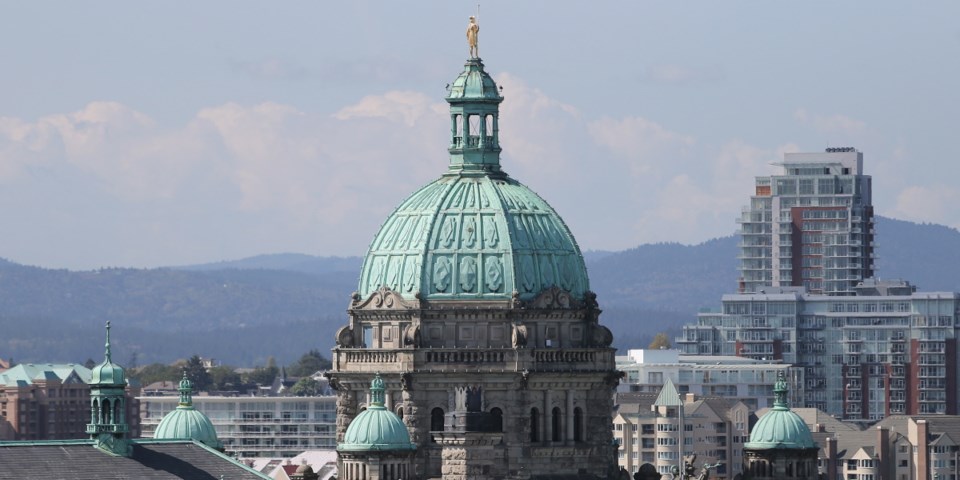British Columbia needs to grow a new liquefied natural gas industry just to afford the rising cost of existing government services, says Premier Christy Clark's government.
In her government's speech from the throne Monday, read by Lt.-Gov. Judith Guichon, Clark made little mention of a "Prosperity Fund" for billions in LNG revenue that she had previously promised would erase B.C.'s debt and usher in $1 trillion in new economic prosperity.
Instead, she cast the industry as "a chance — not a windfall" that will help B.C. "maintain the same world-class services we rely on."
"The core services this government provides need to be protected," said Guichon, reading the speech written by the government.
"And the inescapable truth is that they can only be protected if we can afford them. The opportunity afforded by LNG is more than a chance to make a smart investment."
The government's speech highlighted the slow global economy and ageing population as challenges in maintaining B.C.'s current publicly funded services.
B.C.'s export market for gas in the United States has dried up "and is never coming back," so the province must focus on other markets, read the speech.
Although there are as many as 17 LNG proponents in the province, none have made final investment decisions, and several — including Malaysia's Petronas on Monday — have criticized the province publicly for taking too long and proposing too high a tax rate.
The Liberal government is heavily banking on at least some projects becoming a reality, in order to fulfil an election promises of an LNG industry that generates as much as $1 trillion in economic activity and wipes out B.C.'s $60-billion debt, fills a $100-billion prosperity fund and creates as many as 100,000 jobs.
The throne speech Monday reconfirmed the government's well-documented intention to pass legislation settling an LNG tax regime this fall, but offered no details on the actual tax rate.
The government unveiled the two-tier tax structure in February's budget, with a proposed 1.5 per cent tax on net income of a facility after commercial production has begun, followed by a rate of seven per cent once a company has deducted eligible capital costs from actually building the plant.
Those rates are expected to be lower in the final version of the tax. The government is also expected to widen the definition of capital costs companies are able to deduct against the tax.
"This framework will be fair for the owners of this resource - the people of British Columbia," Guichon read from the speech.
"This framework will create certainty for business and investment. This framework will define how we will develop this resource responsibility, in a way that protects our environment, and continues to lead the global fight against climate change."
Separate legislation this session will also outline greenhouse gas emission standards that LNG companies will have to meet, as well as how the government balances any increased pollution caused by LNG facilities with the province's legislated GHG reduction targets.
"B.C.'s 150-year supply of natural gas is an opportunity to change the world," read the throne speech.
"An opportunity to dramatically reduce air pollution in the world's biggest emitter of greenhouse gases."
The government's throne speech also highlighted the Supreme Court of Canada ruling on aboriginal land title as "a new opportunity" for the province.
"It is an opportunity to finally resolve disputes and make decisions together than reflect our common interests and shared vision for a better future," read Guichon.
"It is an opportunity to move forward towards a more meaningful, inclusive and fair partnership."
The government also re-iterated the importance of restoring public trust in B.C.'s mining industry after a tailings pond breach at the Mount Polley mine this summer.
"This government will continue to investigate what happened," said Guichon. "It will continue to work towards preventing it from ever happening again."
And the government called upon teachers to use the calm provided by a new five-year contract to help rebuild the education system.
The fall session of the legislature is scheduled to run until Nov. 27.


